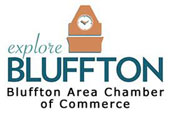The “contact zone,” as defined by Kate Spike, will never be confused with the comfort zone where many people like to spend their time.
The first zone is where humans “brush up against each other,” whether in language, literacy or culture, as well as geographically, she said in Bluffton University’s annual Civic Engagement Forum on March 24. “It’s not a comfortable place,” the assistant professor of English added, comparing it to “burlap underwear”—something that most people would like to avoid.
But it should be embraced instead, Spike asserted, explaining that amid the discomfort, learning occurs.
Her history with the contact zone dates to 1986, when she was 15 and chosen to be among a group of young U.S. “peace ambassadors” to the then-Soviet Union. Distrust between the two countries was high, she reminded her mainly student listeners, but a short-term exchange of young people was part of Soviet leader Mikhail Gorbachev’s new policy of “glasnost” (openness). And her interest in participating wasn’t met with resistance from her parents, although friends and neighbors couldn’t understand why, she noted.
After eight months of preparation—learning language, culture and politics—the trip was “such an adventure,” encompassing visits to several of the Soviet republics, Spike recalled.
“Something like that changes a person,” she said, calling it a “transformative” experience that made her realize that what her friends and neighbors—and she—thought about the Soviet Union wasn’t accurate. She had been given an opportunity “to start to learn,” she continued, and “the more you learn, the more you know you don’t know anything.”
The trip also ignited her desire to travel the world—“to see and experience everything,” as she described it.
Spike came to Bluffton for college, majoring in English and graduating in 1993, before moving on to graduate school at Bowling Green State University, where she became interested in TESOL—Teaching English to Speakers of Other Languages.
Initially viewing TESOL as a way to support herself while traveling the world, she found that she loved serving others that way and wanted “to spend every day with people who were not like me,” she said.
Among other places, her wanderlust has since taken her to the Czech Republic and Japan—she has lived in both countries—and on four trips to Botswana. She led Bluffton students on a cross-cultural experience in the southern African nation two years ago and will do so again this spring, now as chair of the university’s cross-cultural committee.
Along the way, Spike has learned that, among other things:
• Spanish may have masculine and feminine nouns, but the Czech language has those two plus a third—neuter—and Swahili includes 18 “noun classes.” Her experience with each language helped prepare her for the next, she noted. “Every time you encounter something like this, it stretches you.”
• Japan has three alphabets that work together. She said she nearly had a “panic attack” the first time she walked into a Japanese store and couldn’t understand anything written there, but that feeling helped her not to take her English literacy for granted.
• It apparently is not considered rude to stare in the Czech Republic, where a woman kept looking at Spike on a bus despite her efforts to break the woman’s gaze. She related, however, that when she mentioned the incident to a Czech friend who obviously had a different “cultural expectation,” the response was, “Why wouldn’t you look at people?”
Cultural assumptions can lead to uncomfortable, or even embarrassing, mistakes, but making an effort to engage in the contact zone is worth it, she argued. She offered her audience several tips for doing so, including:
• Getting comfortable with conflict. That doesn’t mean picking fights, she said, but rather, for example, that two people can interpret the same situation differently—and both may be right.
• Reaching out and connecting. “You need to talk to strangers,” she stressed, saying that Americans are generally afraid to do that. “I hate to break it to you, but they’re people. Don’t be afraid to start those conversations.”
• Trying a new language or dialect. Doing so “gives us a window to how other people view our society,” she maintained.
• Embracing uncertainty/taking risks. “Don’t let your fear of the unknown keep you from doing that,” she said.
Spike is the 2014-15 civic engagement lecturer at Bluffton, whose civic engagement theme this year has been “Education Matters! Learning for Life, Vocation and Responsible Citizenship.” Each year’s theme is a contemporary issue that is related to the university’s mission and becomes the subject of cross-disciplinary exploration throughout the academic year.


